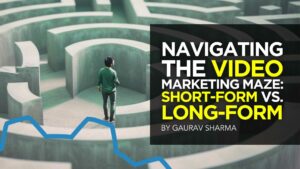The issue of oversight and regulation for artificial intelligence (AI) has been brought to the forefront in a hearing held today by the Judiciary Committee.
Policymakers and AI experts, including Sam Altman, ChatGPT’s creator, and OpenAI’s CEO, discussed the technology’s possibilities and challenges.
Altman highlighted AI’s potential for scientific advancement, from curing cancer to modeling climate change, but warned about the potential harms, including disinformation, housing discrimination, harassment, and fraud.
The promises of AI are immense, and the risks are equally significant.
Discussions like the one held today are essential for finding the right approach to regulation and ensuring the responsible use of AI.
In this article, we delve into highlights from the hearing. By the end, you’ll better understand AI oversight’s complexities and the questions that policymakers and industry leaders grapple with.
Balancing Regulation & Responsibility
Altman advocates for regulatory intervention to mitigate the risks of increasingly powerful AI models.
However, he emphasizes that companies should bear responsibility regardless of what Congress does.
He proposed a precision regulation approach to AI, arguing that safeguards and accountability are not burdens but foundations for innovation and maintaining public trust.
Altman is concerned about AI’s potential to manipulate voter behavior, especially in upcoming elections.
He fully supports regulations to ensure transparency about AI-generated content and would like to see disclosure guidelines implemented.
Overcoming The Challenges Of Regulation
Altman argues that regulation shouldn’t stifle innovation or small business growth.
He believes regulatory pressure could slow down American industry, potentially allowing competitors like China to progress faster.
While in favor of larger tech firms facing regulatory pressure, Altman says regulations shouldn’t hinder the more minor players or open-source efforts.
Altman noted during the hearing:
“I think America has got to continue to lead… and I think this can happen with regulatory pressure. It should be on us, it should be on Google, it should be on the other small set of people in the lead the most. We don’t want to slow down smaller startups, we don’t want to slow down open-source efforts.”
The Call For A Dedicated Agency
Given AI’s complexity and rapid evolution, Altman advocated for a cabinet-level organization within the United States to address the challenges posed by AI.
“We need a lot of technical expertise, we need a lot of coordination of these efforts… AI is going to be such a large part of our future and is so complicated and moving so fast,” Altman explained.
Meanwhile, lawmakers in the Judiciary Committee, including Senator Larry Hogan, expressed concern about the consequences of technology outpacing regulation.
Senator Hogan drew attention to instances of personal data exploitation, disinformation proliferation, and societal inequalities perpetuation due to AI.
The Judiciary Committee members acknowledged their need to rapidly develop knowledge of AI and its implications.
They admit to missing the window to establish regulations and govern AI in its current and future forms, citing past instances where they missed opportunities to regulate social media and the internet.
A Complex Path Forward
The path forward for AI oversight is intriguing and worrisome.
While the consensus on the need for oversight is clear, striking the right balance remains challenging.
Tuesday’s hearing marks a pivotal moment for policymakers tasked with educating themselves to legislate on a subject with significant implications for society’s future.
Conversations between policymakers and CEOs can help ensure we navigate AI’s challenges and opportunities safely, ethically, and inclusively.
As the world races forward, it’s crucial discussions like these continue.
Source: Associated Press
Featured image generated by the author using Midjourney.







